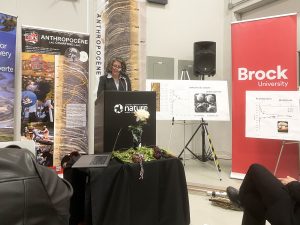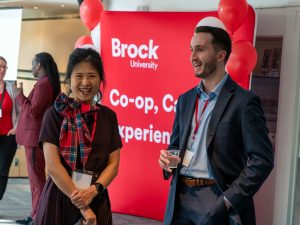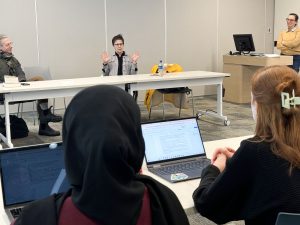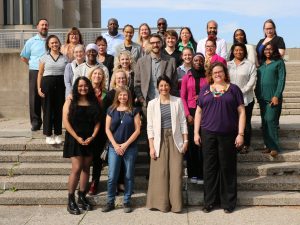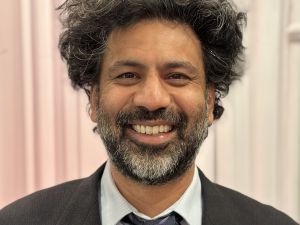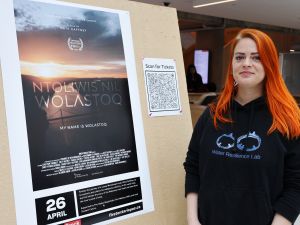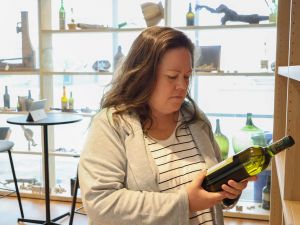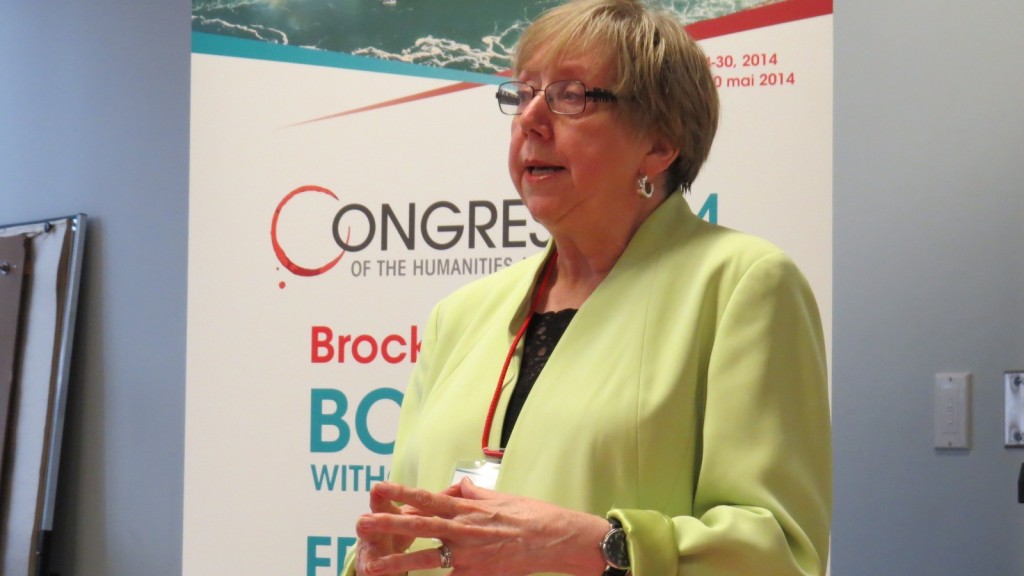
Brock University English Language and Literature Prof. Marilyn Rose.
Universities need to do a much better job of preparing their graduate students for a very tough job market outside of university circles, said speakers at a panel held during the recent Congress 2014 at Brock.
Historically, PhD students have been socialized to pursue careers in academia, being told that careers outside of the institution are not as fulfilling or are inferior, said John T. Ho, Vice Provost for Graduate Education and Dean of the Graduate School in the University at Buffalo.
“We want to remove the stigma that, if you get a job in government or industry, it is only a consolation prize. These are perfectly good careers that you could pursue without any reservations,” he told the gathering.
“For those of you who are graduate students, one of the best things that you can do is to become active and to agitate for your program’s attention to the question of what you might pursue after completing your degree,” said Brock University English Language and Literature Prof. Marilyn Rose.
Rose said this is increasingly necessary, as the “PhD crisis,” which hits hard “when PhDs realize they won’t be professors,” isn’t just about an oversupply of people holding PhD degrees.
It’s about transforming attitudes that academic opportunities are the only game in town, said Rose. “Only graduate school culture can cultivate keenness about many alternate, non-academic careers available to our graduating students.”
Rose and Ho presented at the Canada/US connections interdisciplinary panel: Comparisons of the crisis of PhD surplus, cross-border research and talent mobility panel, held May 27 at Congress 2014.
Ho said it is difficult to track whether or not there is an overabundance of PhDs in the U.S. job market and how many of these PhD graduates are getting jobs.
But in some parts of academia, the situation is clear, he said.
“Recent [U.S.] surveys show that if you get a PhD in the biomedical sciences, the chances of getting a tenure-track position within five years is only 14 per cent,” he told the gathering.
Ho urged universities to ask employers for suggestions on changing curricula to make graduates more employable, help students network with potential employers and set up more internships “so that students get a feel for the real world.”
Brock University’s Rose is calling for a “professional skills training and career planning framework” integrated into graduate programs that would “show students how to translate their academic skills, knowledge, training or experience into workplace-savvy language.”
Rose, who is coach and mentor to graduate students in her department, urges universities to implement employment-preparation initiatives that might include:
• encouraging students to start thinking early about academic and non-academic opportunities, as students need to gain relevant experience during their graduate years
• listening to students about what they’re interested in doing and “making it OK for them to express interest in a broad range of careers”
• mandating a communications course for graduate students that would emphasize communicating for diverse audiences
• offering students professional development programs that explore opportunities outside academia
• encouraging community service, which enables students to pursue “genuine networking” in real-world contexts
• tracking graduate students’ career paths, and
• identifying a career mentor as well as a research mentor for students; a faculty member could be designated to coach students in finding career paths commensurate with their graduate studies.
“There are a lot of us who are passionate about helping our students to launch,” she said. “In many cases we represent an untapped resource.”




